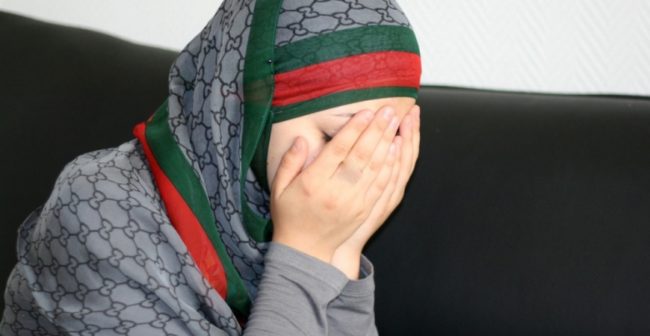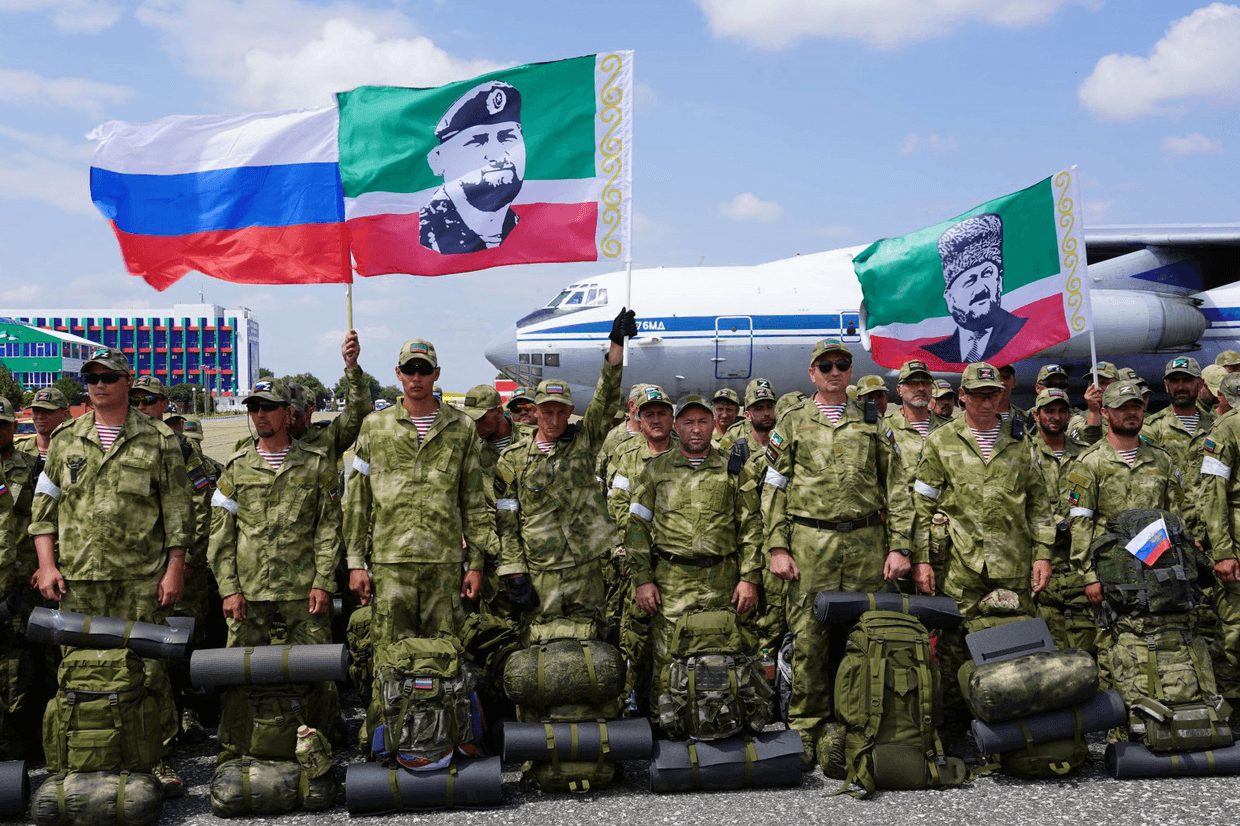

(Daptar)
 At the end of July, Chechen authorities reported on the progress of the Commission on the Reunification of Broken Families. They said that ‘in a short time’ they had managed to reunite 240 divorced couples. However, some experts say that such a commission could only work with the help of professional psychologists and NGOs, to get to the real root of family conflicts.
At the end of July, Chechen authorities reported on the progress of the Commission on the Reunification of Broken Families. They said that ‘in a short time’ they had managed to reunite 240 divorced couples. However, some experts say that such a commission could only work with the help of professional psychologists and NGOs, to get to the real root of family conflicts.
Authorities in Chechnya, on Head of Chechnya Ramzan Kadyrov’s orders, are currently working on the ‘harmonization of marriage and family relations’. This involves special groups working to reunite divorced couples; in mosques they read sermons about the importance of ‘preserving the family’, and a helpline was created with volunteers who want to help reunite the couples.
Kadyrov himself recently summed up the results: 240 out of the 1,970 divorced couples in the republic had been reunited, he said. According to him, they bitterly regretted getting divorced.
‘Therefore, I once again, very convincingly ask young people not to rush to destroy families, to break family ties. It can always happen! But the reverse process is very difficult’, Kadyrov said.
The work to reduce the number of divorced couples is set to continue. According to Kadyrov, this will include social advertising on the importance of ‘preserving the family’. He also remarked that imams should explain the full responsibility of marriage to young people who decide to marry, including the responsibilities of bringing up children.
‘You need to work more with men’, he said.
Irina Kosterina, a Gender Researcher and coordinator of the Heinrich Böll Foundation’s ‘Gender Democracy’ programme, told Daptar that the commissions appeared in Chechnya several years ago. The reason for their appearance is simple, she said, that the growing number of divorces in the republic is contrary to Chechen traditions.
While traditionally men initiated divorce, it is now more often women. This is despite local adats (customary law) stating that children should stay in the father’s family, says Kosterina.
Although even this is changing, with some women going against the adats and trying to secure custody over children through the courts.
‘The idea of the commission seems nice, but for its implementation, they started from the wrong side. It seemed to them that they would talk with a woman and tell her: “think about it, you need to accept it, you need to behave correctly” — and the problem would be solved. But woman will say: “I cannot accept it. He beats me, he doesn’t earn money, he is enjoying time somewhere, why would I live with him?” and the commission has discovered that they have to work more with the men, but it is not clear how to work with them’, Kosterina says.
She says that in order for the work of the commission to be effective, it shouldn’t only consist of clergy and the authorities, who do not have the skills to mediate and do not know how to work with domestic violence. There should be competent experts as well.
‘People acted reasonably at the commission meeting I attended three years ago. They started dialogue with public organisations, with psychologists, because they understood that they have much more competence in this. It’s completely different what is happening in Russia today. There is a witch hunt for public organisations, so clergy now don’t really want to be directly affiliated with them. But they can still call psychologists to ask for advice or pass on some particularly complicated cases’, Kosterina adds.
She says that divorce should not be seen as a failure of the commission — in some cases it’s not possible to solve a conflict, and in such cases it’s better to allow a couple to divorce.

‘There are marriages, when divorce is the best solution’
Psychologist Asya Gagiyeva tells Daptar that if you want to apply external intervention to reduce divorces, then it should happen with an individual approach to each family.
‘The efforts of Chechnya to unite divorced couples is connected with the desire to improve the family situation in the republic. However they do not consider several factors, including the reasons for the divorces. There are marriages where divorce is the best solution, especially for women’, Gagiyeva says.
First of all, they need to take into account the desire of the spouses to reunite and their desire to work on themselves, so as not to repeat previous mistakes in the marriage, the psychologist says. If they want to get back together but are afraid of public opinion, if they are ready to cooperate, then external assistance will help them she says.
But the initiative will only do harm if at least one of the spouses doesn’t want to go back to their previous life, if they divorced for good reason, or are not ready to work on improving their relationship.
‘In such a case I doubt that external intervention will somehow improve the situation. Most likely, they will step on the same rake, but this time it will be more painful’, she remarks.
‘Islam allows divorce’
Nasima Bokova, former editor of the magazine Musulmanka (muslim woman), believes that such ‘harmonisation of marriage and family relations’ may be harmful.
‘You immediately ask, how all of it happens, how talks are being conducted, how is it regulated, who, and using what methods, will solve the problems which led to the divorce?’ she told Daptar. She says that it will result in unhappy families and she cannot understand why it is necessary.
Bokova says the initial idea to help families is not a bad one, but you cannot forget that Islam allows divorce.
‘This is a voluntary desire. Just like you cannot force a woman to get married without her consent — you cannot force her remain in marriage. If there is pressure by public opinion or by Caucasian traditions, this is not good. Although divorce in Islam is discouraged, it is permitted and there are cases when divorce is the only way to save a woman’s life’, Bokova says.
One Chechen woman, Safia, complains that she does not like such interference from the authorities in her private life.
‘There is still tension from relatives, parents, especially towards girls, telling them “do not get divorced, tolerate [your husband] whatever the case”. If the authorities interfere as well, then there will be absolute compulsion. There will be unhappy families — and why?’ she asks.
The article is a partner post written by Yulia Suguyeva. The original version first appeared on Daptar, on 31 July 2017.






